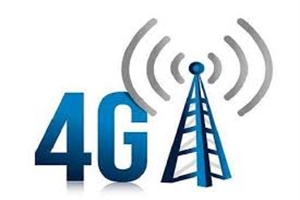
Vietnam is preparing to apply 4G (fourth-generation network) technology from 2015. However, industry insiders said the country should be in no rush to make the switch, as moving to 4G would involve significant investment in infrastructure and require end users to buy new mobile phones.
 Huawei Vietnam's General Director Yuan Song said that 3G was only introduced in Vietnam in 2009 and was still in the fast growth stage.
Huawei Vietnam's General Director Yuan Song said that 3G was only introduced in Vietnam in 2009 and was still in the fast growth stage.
Thieu Phuong Nam, General Director of Qualcomm in Vietnam, Laos and Cambodia, pointed out that while the world was converting to 4G, Vietnam's 3G market share was still on the rise and therefore the country should not be in a hurry to upgrade.
Vietnam had fewer 3G users than developed nations, where 70-80 percent of mobile phone owners used 3G, he said.
Pointing out that Vietnam's service fees were the lowest in the world and quality was continuously improving, he suggested that 4G be considered only after the 3.5G network was introduced.
Earlier this year, the Ministry of Information and Communications reported that it had no intention of encouraging the immediate application of 4G technology in order to safeguard mobile network operators.
The ministry stated that licensces for mobile operators to provide 4G services would be delayed until at least 2015, after service providers had completed test runs and an assessment of market demand for the new technology had been made.
Five mobile operators have already been allowed to run basic 4G trials since 2010. 4G promises much faster mobile and Internet connections than 3G.
Another issue under consideration is which frequency band to use for 4G long-term evolution (LTE).
LTE, marketed as 4G LTE, refers to the wireless communication of high-speed data used by mobile phones and data terminals. According to the Radio Frequency Department at the Ministry of Information and Communications, the waveband for LTE 4G in Vietnam needs to be used and supported by other countries. Even more importantly, it needs to be compatible with RiPE technology, which is affordable for most Vietnamese users.
While the Vietnamese telecommunications market has grown rapidly, it is still controlled by three large network providers (Viettel, Mobifone and Vinafone) which see total annual turnover of 5.5 billion USD.
Vietnam has around 20 million 3G subscribers out of over 130 million mobile phone users, according to the Ministry of Information and Communications.

 Previous page
Previous page Back to top
Back to top







